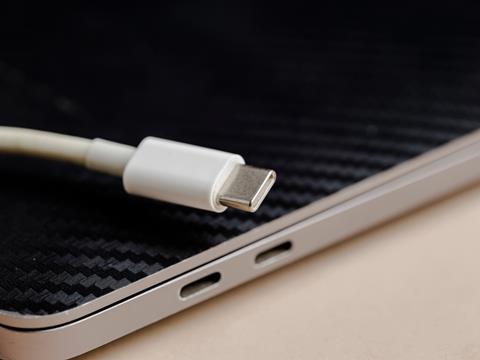
Pegasus Materials has announced the debut of its first two materials and the expansion of its seed round - led by studio Ferment and existing investor LIOF alongside prior investment from Fibrant BV - aiming to accelerate commercial scale-up of its products for the electronics, data centre and aerospace industries.
Pegasus Materials says it uses bio-based chemical building blocks to develop unique materials to meet the needs of customers with demanding performance requirements while also being made from renewable sources with lower greenhouse gas emissions. The company’s first product aims to improve how electronic connectors are designed and manufactured - with thinner walls, better electrical properties and higher yields - and its second product seeks to bring new production-grade performance to 3D printing.
According to the company, Virela-X001 is a bio-based high heat polyamide that combines high flow for smaller, more precise moulding with ultra-low moisture uptake to reduce warping and blistering during production. The material is being evaluated by connector manufacturers for USB-C interconnects and for DDR memory connectors used in data centre servers.
The second material, Virela-X002, is a partially bio-based polyimide for industrial 3D printing. It combines ‘exceptional’ isotropic and high heat tolerance, making it possible to print durable, lightweight components. Pegasus Materials is working with aerospace and defense partners to evaluate the material for use in aircraft components where strength, heat resistance, and weight savings are priorities.
With Ferment’s investment, the company plans to accelerate the transition from pilot to commercial production, expand customer qualification programs, and advance its next wave of materials for high-performance industries.
In the 3D printing space, back in March researchers at the University of Washington mixed coffee grounds, mushroom spores and mycelium to 3D-print a ‘compostable’ packaging material said to perform similarly to polystyrene dunnage. When inoculated with the mushroom spores that form the mycelial skin, the coffee grounds can be formed into a material set to replace plastics, even in complex shapes.
The following month, the Fraunhofer Institute for Manufacturing Technology and Advanced Materials (IFAM) and the Bremen University of Applied Sciences (HSB) joined forces to recycle polypropylene packaging waste into filaments for 3D printing. The two companies seek to implement recyclate from private households into additive manufacturing.
If you liked this story, you might also enjoy:
The ultimate guide to the Packaging and Packaging Waste Regulation in 2025
How are the top brands progressing on packaging sustainability?
Everything you need to know about global packaging sustainability regulation in 2025
The key to increasing the use of reusable packaging in supermarkets














No comments yet